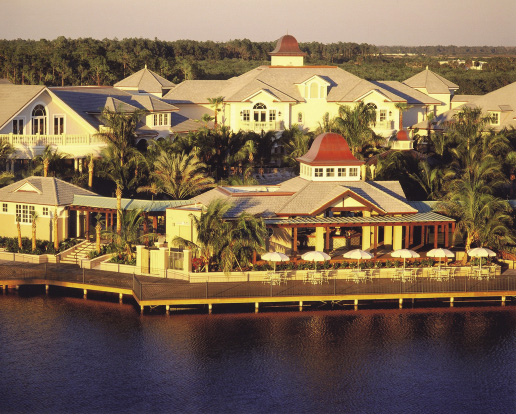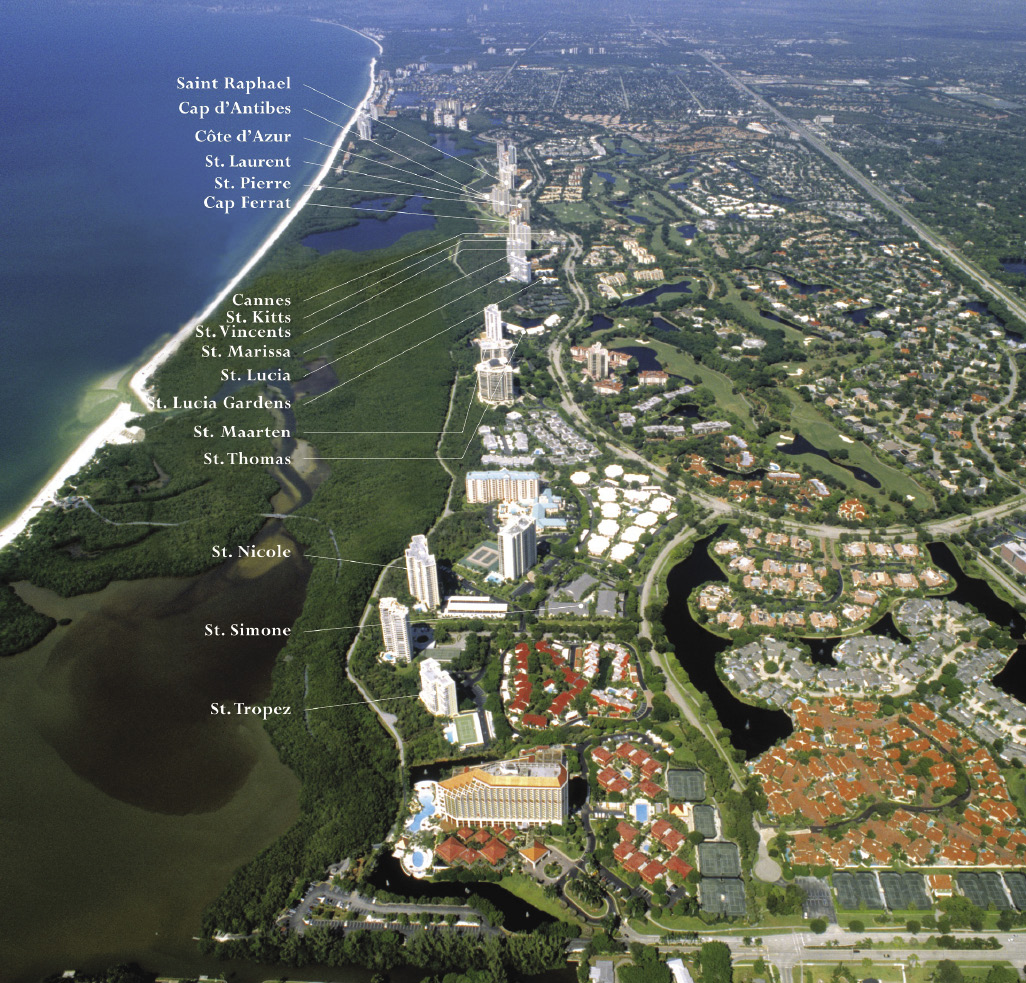- Home
- Media Kit
- Current Issue
- Past Issues
- Ad Specs-Submission
- Ad Print Settings
- Reprints (PDF)
- Photo Specifications (PDF)
- Contact Us

![]()
ONLINE

Seizing Opportunities
Editors’ Note
Born in India, Aubrey Ferrao was educated at the University of Delhi and received his bachelor of arts degree in History from St. Stephens College. He immigrated to the U.S. in 1973 to study Business Administration at Illinois State University. He then began a 26-year real estate career in Naples, Florida, starting as a broker and then forming Gulf Bay in 1986. Gulf Bay has developed several billion dollars of real estate. In 2009, Ferrao started Aviation Dynamics and foresees annual revenues in excess of $100 million by 2012.
Company Brief
Headquartered in Naples, The Gulf Bay Group of Companies (www.gulfbay.com) is one of the largest privately owned development companies in Florida and has successfully developed a multitude of luxury gulf-front properties there. The company’s portfolio includes 16 high- and low-rise residential condominiums in the upscale Pelican Bay and Park Shore neighborhoods of Naples and Fiddlers Creek; a nearly 4,000-acre master-planned community; and a 100-suite beachfront hotel, restaurants, a golf course, a marina, and an expansive resort-style Club & Spa. Gulf Bay has evolved into a multifaceted real estate company with capabilities that include real estate construction, sales, mortgage brokerage, consulting, and property management services. Gulf Bay’s envisioned build-out value of luxury residential properties, together with land currently under development, is in excess of $5 billion.
In 1986, what did you see in the market that made you feel the timing was right for the formation of Gulf Bay?
I moved to Florida in 1980 and got into real estate there at probably the worst time to enter into real estate in the country since prime rate was at 18 percent and no one was buying.
I built up a very good book of business as a real estate broker and learned that if you’re going to make mistakes, it’s a lot easier and cheaper to make them on paper than in concrete. I understood design was important so I focused on that.
I saw that the market was loosening up and I made a transition from broker to developer.
You were focused on the Naples market at that time?
Yes. Naples is a fine, eclectic community with a relaxed feel of the Midwest – a wonderful place for me and my family to develop our roots. My first development was a high-rise condominium project in Pelican Bay, a huge multi-unit community fronting the Gulf of Mexico on property which was owned by Westinghouse at the time. I bought my first piece of land for a high-rise and started developing a 15-story building, St. Tropez, along the Gulf of Mexico in 1986. I bought up a mile and a half of gulf-front property from Westinghouse and still own two of the last pieces of undeveloped real estate for high-rises on the Gulf of Mexico in Naples.
Was Pelican Bay designed to specifically focus on the luxury segment and high-end clientele?
Yes. It is primarily a high-end luxury high-rise environment with many of the amenities that buyers look for.
Many refer to you as the creator of the Pelican Bay skyline. Did you have that vision early on?
Early on, I had no such idea. All I was concerned about was getting one high-rise successfully in the ground and I didn’t think beyond that first high-rise.
You still have areas to finish building out of Pelican Bay. What are your plans for those remaining locations?
I plan on building out the last two high-rise sites in Naples along the Gulf of Mexico. We already have the plans done and we will develop them. The sell-out is about $600 million and we’ll put them on the market when the time is right, which will be 2013 or 2014.
What did you see in south Naples that perhaps other people didn’t see early on and how has that evolved?
In my position in real estate, we are a major player along the Gulf of Mexico. We already owned a lot of land along the Gulf and in Pelican Bay, and I saw that opportunities would be coming to an end because the undeveloped gulf-front land was running out and could not be replaced. I wanted to focus on the next area around Naples where I could amass a major land position and be a major player in the markets.
We couldn’t buy much land in north Naples and there were also problems with the infrastructure there, which had not been expanded to meet the growth going on in that area. So we decided to look at south Naples, which was untouched, had great infrastructure and amenities, and had easy access to the Gulf of Mexico for boating and the beach. I was able to amass almost 4,000 acres there with beachfront as well as marinas.
Was Fiddler’s Creek your initial project in that area?
Yes. My first acquisition was about 1,300 acres that I bought from Citicorp REO in Manhattan. I bought the balance, 2,600 acres of land, for that project from Monsanto.

View from the back of the 54,000-square-foot
Club & Spa at Fiddler’s Creek
At Fiddler’s Creek, you have incorporated a 54,000-square-foot Club & Spa, as well as a major focus on fine dining experiences. How did you decide that these were important elements to include in the development?
We always look at lifestyle, which is what attracts people to live in a community. Naples itself offers a culturally rich, laid back lifestyle and we wanted Fiddlers Creek to offer unsurpassed lifestyle opportunities, featuring golf, boating, and the beach. Fiddler’s Creek will not only offer the Club & Spa, but there is a plan for a total of three golf courses: the first golf course has already been built and has been consistently ranked in Golfweek’s top 100 residential golf courses in the country.
We also have the Marco Beach Ocean Resort on the beach, which provides us with a beach facility for homeowners who want to join The Tarpon Club, which is our marina and beach club.
We also have our dry storage marina completed, where boat owners can store their boats and we just got approval of our permits for our wet slips, for docking boats at the marina.
So we have facilities for boating, the beach, golf, and the health club and spa. We were the first to do this in Naples, because the baby boomers are more health conscious than they used to be, so we put it into our lifestyle program, which has been well received.
How is the Naples market faring after the recent economic crisis?
The market is recovering, albeit slowly, and I look at Naples as being at the bottom coming back up; it will be 2013 to 2014 before we see a normal market. It’s in recovery mode and is gaining momentum all the time

A private jet in flight
You have entered the aviation industry with Aviation Dynamics. What is your vision for the company?
It’s a small market but the opportunities are great. I wound up buying 13 jets from an institution and have steadily bought and sold jets. It has turned into a very good business.
We buy from super mid-sized to large jets and all the way up to airliners. We are selling them mostly in South America, Asia, and some in the Middle East. The North American market came back this year, but there still isn’t a European market.
Has it been easier to understand the nuances of the jet industry?
If you know how to buy and sell, it’s easy to do business. So I’ve learned it as I have invested in it. When we buy an aircraft, the engines get checked and if they need work, I have someone to manage that; if we need an interior, we put that in; and we do a paint job when necessary.
I know what I paid and what I want to sell it for and I do it on gut instinct.
You are known to be very philanthropic. Was that instilled in you early on?
God has been very good to me and we want to be able to give back to people who could use the help. My wife and I have inculcated our children with that same desire and the importance of that desire. The Naples community has been good to me and my family, and we are committed to being good to this community in return.
I’d rather be able to put my money where I want to than have the government take my money and have them put it where they want to.

An aerial view of Pelican Bay with Gulf Bay’s projects listed
There is so much need out there. What are you most focused on?
My wife and I are focusing on children and their education. If we can educate a child to his fullest capability, then that child can fend for himself. We support educational and children’s causes, among others, in Florida and are trying to get involved in India because if you can take a child over there and educate him, he’ll do so much better than if he didn’t have that education. It’s the most important factor in opportunity. We are very supportive of children including the unborn and we strongly support life.
Did you know early on that you wanted to create and run your own company?
I came to the U.S. to go to school and I didn’t know that I would ever be in business. You just follow opportunities, work hard, and treat people with honesty and integrity.
There are many who feel that entrepreneurship in the U.S. is being stymied by all the regulation. Is there merit to that?
The ever-increasing bureaucracy in government creates rules and regulations, which make them feel important. And that stymies entrepreneurship. You could get rid of half of our government bureaucracy and I don’t think this country would be less safe.
We have all kinds of financial oversight that doesn’t do anything. If they allowed what happened in 2008 to happen on their watch, then we don’t need them.
We run a very lean company and I’m entrepreneurial, so I can go anywhere to do business.
If I was talking to some of those who have worked with you and asked what it was like, what would they say?
I think they would say that I give them a lot of authority and responsibility once I have faith and trust in them. I’m in command, but they control their departments.
I’m not the smartest in the room and I will listen to other people and, if they have an idea that is better than mine, then that is the idea I will adopt.
Is there a good understanding of the opportunities that Florida offers and is it attracting business?
Our new Governor is a businessman so he knows what we need to get business to Florida.
But it’s simple: In Florida, you have a zero percent state income tax. If I was a company and if I could base myself in Florida, I would do it. I’d keep a representative office in New York, but I’d be based out of Florida.
If you take a 9 to 10 percent increase in the federal income tax – which is going to happen – together with long awaited federal government spending decreases, which has to happen for us to bring our national debt in line and for us to leave our children a country which is not the worse for our stewardship, and you add on top of that the state and city taxes you would pay elsewhere, why wouldn’t you be based in Florida? Inexpensive housing, warm weather, balmy skies, great winters, and zero taxes.•